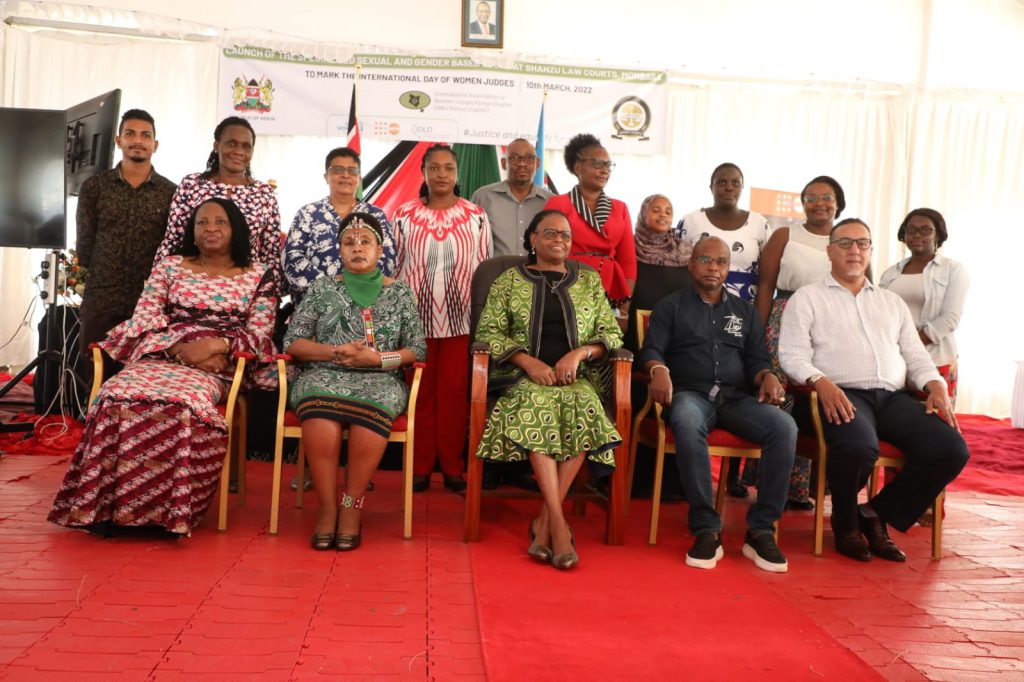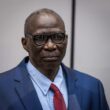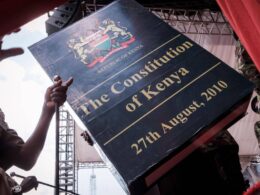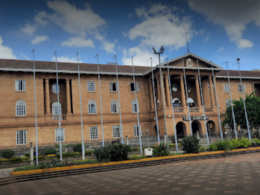By Susan Kendi.
Seated in front of my laptop, sipping my cup of hot steaming coffee as I connected to the virtual court session, this is how I remember December 10, 2020. The Courts in Kenya were holding online sessions as part of the restrictions to combat the Covid-19 pandemic with only urgent cases and plea-taking proceedings in Court.
I logged in and waited for the court clerk to call the matter, Constitutional Petition No. 122 of 2013. The presiding Judge Weldon Korir, was going to deliver judgment in the case for survivors of sexual gender-based violence of the 2007/2008 post-election violence. I was anxious about the uncertainty of the outcome. I reflected on the court sessions that I attended at the Milimani Law Courts, Constitutional and Human Rights Division third Floor (Courtroom 1), and the articles I had written on the case. I felt nostalgic.
Eight survivors of sexual and gender-based violence had filed a petition in 2013 asking the High Court of Kenya to find that the government failed to protect them during the post-election violence that erupted in Kenya between December 2007 and February 2008. The eight survivors are six women and two men. Together with the survivors, four non-governmental organisations are also petitioners in the case. The organisations are Physicians for Human Rights (PHR), the Coalition on Violence Against Women (COVAW), the Kenyan Section of The International Commission of Jurists (ICJ Kenya), and the Independent Medico-Legal Unit (IMLU).
The respondents to the petition are the Director of Public Prosecutions, the Independent Police Oversight Authority (IPOA); the Inspector General of Police; the Minister for Medical Services, and the Minister for Public Health and Sanitation.
Having interacted with some of the survivors in several forums where they shared their stories repeatedly while tearing, it was clear that they are still struggling with the pain of yesteryears. They deserved recognition, justice, and assurance that this will never reoccur, but instead, the government of Kenya will protect them and other citizens from violations.
In one of the Court sessions, I also remembered how they wore white t-shirts with slogans, “I stand for truth, justice, and dignity,” and finally, their long wait for justice was soon coming to an end.
The Historic Judgment
Symbolically, Judge Weldon Korir read out the judgment on December 10, which is the International Human Rights Day and the last day of 16 Days of Activism against Gender-Based Violence, an international campaign calling for the prevention and elimination of violence against women and girls.
The High Court Judge awarded four million Kenya shillings each to four survivors of Sexual and Gender-Based Violence (SGBV) as general damages stating that their constitutional rights were violated during the turmoil that followed the December 2007 presidential election.
“In light of the above analysis and determination, I enter the judgment as follows: one, a declaratory order is hereby issued to the effect that the failure to conduct independent and effective investigations and prosecutions of the SGBV-related crimes during the [2007/2008] post-election violence is a violation of the positive obligation by the Kenyan state to investigate and prosecute violations of the rights to life, the prohibition of torture, inhumane and degrading treatment and the security of person of the fifth, sixth, eighth and ninth petitioners,” said Judge Weldon Korir.
“Two, a declaratory order is hereby issued to the effect that the right to life, the prohibition of torture, inhumane and degrading treatment and the right to security of persons, the right to protection of the law, the right to equality and freedom from discrimination and the right to remedy were violated in relation to the fifth, sixth, eighth and nineth petitioners during the 2007/2008 post-election violence as a result of the failure of the government of Kenya to protect those rights,” said Judge Korir.
He also ordered the Attorney General and Inspector General of Police to pay the four petitioners’ costs of their petition.
The judgment was the first to acknowledge victims and survivors of gender-based violence of the 2007/2008 post-election.
The petitioners in the case, alongside the four organisations, have since filed a partial appeal requesting that the Court of Appeal in Nairobi reconsider the state’s responsibility for its failure to ensure accountability for violations experienced by the remaining four survivor-petitioners and to award appropriate compensation.
The Excruciating Wait
The case had crawled in court for over seven years, since February 2013, with five of the presiding judges handling the case being posted to other courts or promoted.
One of the judges in the case, Hon. Justice Isaac Lenaola, now a Supreme Court Justice, heard the evidence of all 16 witnesses for the petitioners before he was appointed to the Supreme Court in October 2016. The last witness for the petitioners to testify was Betty Murungi, a lawyer and women’s rights, and sexual violence expert. Three subsequent judges from the Constitutional and Human Rights Division took up the case at different times, each orienting and familiarising themselves with the case before they each got transferred. This further delayed the justice process for the survivors of sexual gender-based violence in the 2007/2008 post-election. Judge Chacha Mwita was also one of the Judges who took over the case and heard the evidence of the sole witness for the Office of the Directorate of Public Prosecutions, one of the respondents in the case, Senior Prosecutor Jacinta Nyaboke Nyamosi, who heads the sexual and gender-based violence division in the Directorate of Public Prosecutions. However, in January 2019, he was transferred to the Kajiado High Court before he could hear the submissions of the different parties. Judge Weldon Korir took over the case and finally delivered a judgment in the case. As he handed down the judgment, Judge Weldon Korir was also nominated for promotion to the Court of Appeal and was awaiting confirmation by the President.
The case is one of the many cases that have been lying in Kenyan Courts, illustrating the challenges that survivors of sexual gender-based violence face and the significance of a Sexual Gender-Based Specialised Court.
The light at the end of the tunnel
Two years after the historic judgment, the Chief Justice and President of the Supreme Court of Kenya launched a specialised Sexual and Gender-Based Violence (SGBV) Court at Shanzu Law Courts, Mombasa. The launch came as a response to consistent appeals from women judges and magistrates, advocates, and human rights organisations, even as the world celebrated the International Day of Women Judges.
“As we launch the Court in Shanzu, we expect that it will showcase best practices identified towards ensuring expeditious trials. These include stakeholder engagement and collaboration through the Court User Committees…. It is a reinforcing prompt of the urgency to align the criminal justice sector towards a coordinated structure that preserves the dignity of victims and enhances fair trial within the tenets of the Constitution,” said Chief Justice Martha Koome.
According to a media report by the Kenya Broadcasting Channel (KBC), the Chief Justice Martha Koome directed the courts to implement the ‘no adjournment policy’ when it comes to SGBV cases amid concern that 56% of adjournment of such cases was occasioned by external parties, for the reason that witnesses or parties fail to turn up to the courts.
Kenya has courts dedicated to dealing with the environment, land, corruption, small claims, and employment; however, this is the first special Court on gender-related issues.
A press statement issued by the Ministry of Public Service and Gender revealed that between January and December 2020, a total of 5009 cases were recorded through the National GBV toll-free helpline 1195, which is an increase of 1,411 (36%) reported from the previous year. The data indicated that Nairobi, Kakamega, Kisumu, Nakuru, and Kiambu Counties reported the highest cases of GBV.
The findings by the National Crime Research Centre established that the number of GBV cases recorded between January and June 2020 had an increase of 92% compared with the previous year (2019) period.
The most common forms of GBV unveiled in the study were: physical assault, rape/attempted rape, murder, sexual offences, defilement, grievous harm, physical abuse, child marriages, psychological torture, and child neglect.
The study also highlighted the factors contributing to GBV as alcohol, drug, and substance abuse; poverty; domestic disputes, retrogressive cultural beliefs and practices; poor parenting; identity crisis among the youthful population; and inadequate support system.
The timing of the launch is quite apt and a huge step towards expeditious justice for survivors of sexual gender-based violence and their families. This is also considering the growing rates of violence against women and girls amid the COVID-19 pandemic that hit the country in 2020. In the launch of her vision for the Judiciary that took place in 2021, the Chief Justice had also promised that a case in a trial court should not last more than three years and appeals should be heard and determined within a year; this will further assist in ensuring accountability and justice for survivors in the cases of sexual gender-based violence in Kenya.











